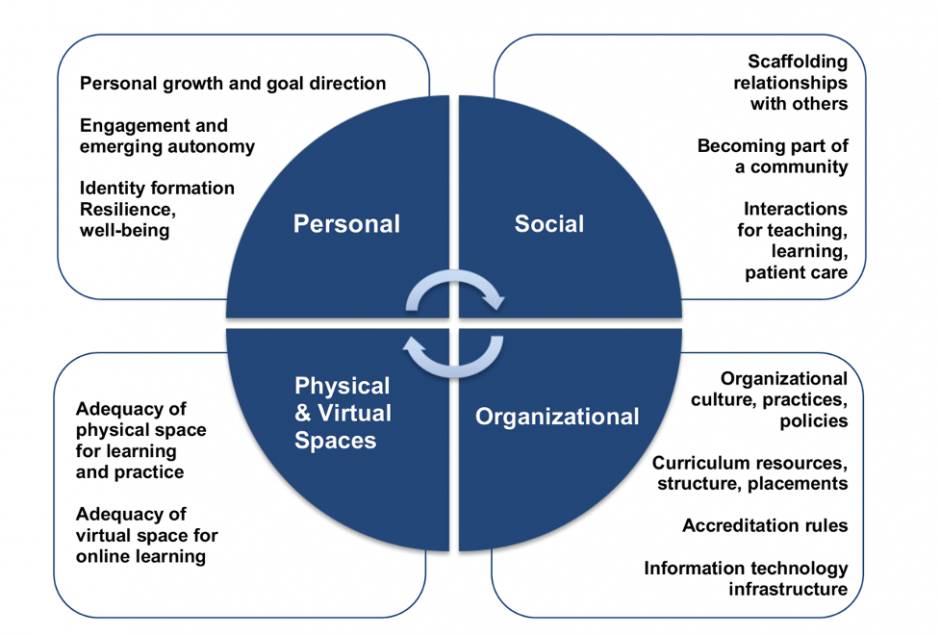Purpose and Authority
The purpose of this subcommittee is to:
- Recommend to the MD Admissions Subcommittee qualified, self-identified Black applicants who are eligible for interview and offer of admission to the MD Undergraduate Program through the General and Black Student MD Admissions Pathways. Recommendations are made in accordance with University of British Columbia and Faculty of Medicine admissions policies and the Faculty of Medicine’s social responsibility mandate. Recommends for admission the qualified Black applicants to be considered for the MD Program positions admitted through the General Admissions Pathway with a supplemental recommendation of admission for 4.3% of the cohort (14 positions) to be considered through an equity-based admissions process. This subcommittee also advises on the Black Student MD Admissions Pathway’s operational policies and recommends changes to the MD Admissions Subcommittee as needed.
Composition
This working group is made up of ex-officio and appointed members.
The Faculty of Medicine’s commitment to equitable and diverse membership on its committees and advisory councils guides its nomination and selection process.
Ex officio
- Assistant Dean, MD Admissions (Co-Chair) (1)
- Black Student Initiatives Manager (Co-Chair) (1)
Appointed
- MD Admissions Subcommittee members (2)
- University of Victoria member (1)
- University of Northern British Columbia member (1)
- University of British Columbia, Okanagan Campus member (1)
- Black Physicians of BC Representative (1)
- UBC Black faculty member (1)
- FoM Black physician member (1)
- UBC Black Medical Student/Resident (4)
- Black community members (2)
Guests may be invited to join specific meetings or portions of specific meetings at the co-chairs’ discretion.
Appointment Process
Ex officio members are members by virtue of their administrative appointment.
Appointed members are appointed by the Assistant Dean, Admissions, MD Program.
Term
Ex officio members are members as long as they hold their administrative appointment.
Appointed members are members for a three-year term and are eligible for one renewal.
Chair
Chaired by the Assistant Dean, Admissions, MD Undergraduate Program and Black Student Initiatives Manager.
Meeting Schedule and Administration
Normally meets twice per year and at the call of the co-chairs.
All members are expected to attend all meetings in person or via videoconference or phone. Because of the confidential nature of the Subcommittee’s business, substitution of representatives at meetings is not permitted.
A staff member from the UGME Admissions Office will capture meeting minutes. Minutes will be circulated to all members, and are strictly confidential.
All members are required to sign a Confidentiality and Conflict of Interest Agreement at the beginning of each admissions cycle.
Records will be maintained in accordance with UBC and and Faculty of Medicine records retention procedures.
Quorum and Decision Making Process
Quorum consists of 50% plus one of voting members.
Decisions regarding recommendations to the MD Admissions Subcommittee about candidate files are made by vote, requiring a two thirds (2/3) majority of voting members present to vote in favour in order to pass.
Other decisions are made by vote, requiring 50% plus one of voting members present to vote in favour in order to pass.
Lines of Accountability and Communication
This subcommittee:
- Makes recommendations to, reports to, takes direction from, and submits a written annual report to the MD Admissions Subcommittee.
Representatives of this subcommittee liaise with other academic and administrative committees and advisory councils, as needed.
Responsibilities
This subcommittee:
- Reviews the applications and supporting documentation to identify suitable applicants to recommend for support through the Black Student MD Pathway.
- Recommends to the MD Admissions Subcommittee qualified, self-identified Black applicants who are eligible for interview.
- Recommends to the MD Admissions Subcommittee qualified, self-identified Black applicants for offer of admission through general and supplemental equity-based processes
- Ensures that recommendations to the MD Admissions Subcommittee are transparent, equitable, and defensible, and that they adhere to the policies set by the MD Admissions Subcommittee.
- Reviews pathway’s operational policies in combination with admission outcomes on an annual basis. Recommends changes to the MD Admissions Subcommittee as needed.
- Reviews its terms of reference on an annual basis and recommends changes to the MD Admissions Subcommittee, as needed.
Approval
This version of these terms of reference has been approved by the Undergraduate Medical Education Committee on August 19, 2024.
Version History
- Originally developed on November 20, 2021
- Reviewed by MD Admissions Subcommittee April 20, 2022
- Revised June 24, 2022, to update wording from “’UGME office’ to ‘UGME Admissions Office’ will capture minutes”
- Approved by the Undergraduate Medical Education Committee on July 18, 2022.
- Updated on August 8, 2022, to include the date the UGME Committee approved this version of the terms of reference.
- Reviewed and updated by MD Admissions Subcommittee on June 4, 2024.

